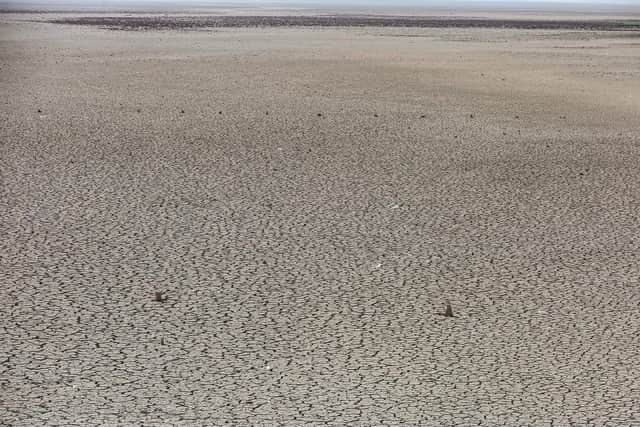Climate change: Walls are no answer to looming refugee crises as millions in Syria and Iraq face 'total collapse' of water supplies – Scotsman says
Record low water levels have been recorded in parts of Syria and Iraq following a sustained drought, with more than 12 million people affected.
Carsten Hansen, of the Norwegian Refugee Council, one of a group of 13 aid agencies that has issued a warning about the deteriorating situation, said the drought “will soon become an unprecedented catastrophe”. “The total collapse of water and food production for millions of Syrians and Iraqis is imminent,” he said, adding this would push more people into becoming refugees.
Advertisement
Hide AdAdvertisement
Hide AdThis plea came amid concern of a repeat of the 2015 refugee crisis following the fall of Afghanistan to the Taliban. In Greece, the authorities have built a border fence designed to prevent their “safe and inviolable” borders from “possibilities for migrant flows”.
Given the world is only going to get warmer, it should be obvious that in places which are already too hot and dry people will be forced to move by a lack of water. And in places where it is hot and humid, temperatures can become so high that the human body is unable to lose enough heat by sweating and going outside for long periods can prove fatal.
It may be tempting for some in this country to console themselves that, so far, the ravages of climate change have not been as bad as in other parts of the world. However, this is a false comfort because problems on such a global scale will eventually come to our door.
Greece’s Trump-style strategy of building a wall is one easily defeated by the humble ladder and is not going to have much effect if millions of desperate people are forced to flee for their lives.


New research for the UN by an international team of academics, including some from Edinburgh, Stirling, and Highlands and Islands universities, has found about a billion children worldwide are at “extremely high risk” from the effects of climate change.
As this planet-wide storm continues to build, developed countries in temperate regions need to start coming up with better ways of dealing with climate refugees than simply turning them away. It is not only immoral but a policy that will, ultimately, fail.
A message from the Editor:
Thank you for reading this article. We're more reliant on your support than ever as the shift in consumer habits brought about by coronavirus impacts our advertisers.
If you haven't already, please consider supporting our trusted, fact-checked journalism by taking out a digital subscription.
Comments
Want to join the conversation? Please or to comment on this article.
